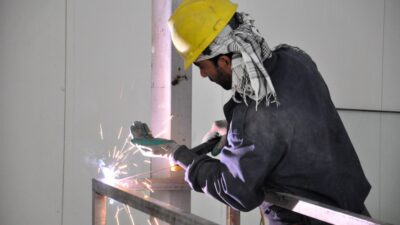Science students at the New York & Wayne Universities are currently investigating a molecule called Osteopontin that has the ability to reveal & expose early stages of Pleural mesothelioma.
A blood test conducted on the Osteopontin can confirm early stages of Pleural mesothelioma, this study says, which is also published on the Oct. 13 issue of The New England Journal of Medicine.
Pleural Mesothelioma occurs when Cancer hits the lining of the lungs, also known as the ‘Pleura.’Through ages, over 7.5 million American workers have been exposed to Asbestos either through occupational exposure or environmental exposure.
Furthermore, the Environmental Protection Agency (EPA) estimates another 1.3 million American workers are at risk of Asbestos exposure, specifically in the building & construction industries.
Treatments in early stages of Cancer are much more effective as opposed to if treatments are done on Cancer that has advanced to higher stages.
The Osteopontin blood test could help identify people who have been exposed to Asbestos, and about to develop Pleural mesothelioma in its early stages. Harvey Pass, M.D., Chief of Thoracic Surgery & Oncology Dision in NYU Medicine School, Cardiothoracic Surgery Department quotes,
“The levels of a protein called osteopontin rise dramatically in the early stage of this disease. A rise in the level of this biomarker in workers with past asbestos exposure may indicate to physicians that these people need to be followed even more closely for the development of cancer.”
The image on the left is of Glycoprotein, which is also known as Osteopontin, infact Osteopontin derives its name from the Glycoprotein cell.
Glycoprotein is a mixture of protein and carbohydrates, and was discovered in 1986. Further to its link in the development of Pleural mesothelioma, Glycoprotein is linked with other types of Cancer including stomach and ovarian cancer, melanoma, breast and lung cancer.
Glycoproteins are formed when sugar molecules (also known as glyconutrients) form Sugar chains known as glycans, that then bind with protein molecules (Osteopontins) to form Glycoproteins.
Osteopontin Blood Levels Study
The above mentioned study was conducted on 190 patients out of which 69 had developed non-malignant asbestos related diseases such as inflammation or scarring of the lungs.
45 were current smokers with no previous known Asbestos exposure, and the remaining 76 patients suffered from Pleural mesothelioma.
People with Asbestos exposure of less than 10 years showed the least amount of Osteopontin protein while the protein was highest in people with 10 years or more of Asbestos exposure.
Levels of Osteopontin protein rose higher when scarring or inflammation of the lungs, as detected on X rays were done.
Patients suffering from Pleural mesothelioma had the highest level of Osteopontin protein, even in the early stages of the disease.
The scientists in this study have not yet determined what levels of Osteopontin protein in the blood warrants a diagnosis test for Pleural mesothelioma, and more research needs to be done in this area. Dr. Harvey Pass adds, “What is crucial is that the marker is very encouraging specifically in asbestos-related early-stage disease.”
Patients with Pleural mesothelioma in advanced stages often live for only 9 – 12 months after diagnosis. Also, and unfortunately, only 5% or lesser of mesothelioma patients are diagnosed with Cancer in its early stages, 95% of new diagnosed cases are already in their advanced stages.
Dr. Pass quotes,
“There are therapies that will help patients live longer–I would really like to see more patients found early. Early detection may find patients before they suffer the ravages of the disease including shortness of breath and pain. At this point in time, surgery, radiation therapy, chemotherapy, and new targeted therapies may help extend patients’ lives.”













